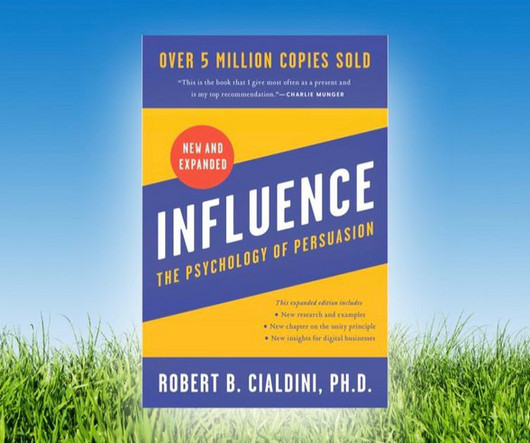Great Books That Grow You: Influence: The Psychology of Persuasion
Rich Gee Group
APRIL 13, 2023
Unpacking the Science Behind How We're Convinced and How to Use It Ethically As social creatures, we often seek shortcuts to navigate our complex world. By understanding these principles, individuals and businesses can learn to recognize when they're being influenced and how to persuade others ethically.












Let's personalize your content